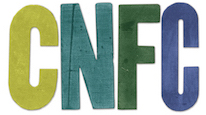By Lesley Buxton
This year’s CNFC contest judge, Omar Mouallem, is not at all as I imagine him to be. Reading about his achievements online, I’m totally prepared to be intimidated. After all, he’s written for The New Yorker, Rolling Stone, Maclean’s, Wired and The Guardian and has been nominated for 13 National Magazine Awards and won three. He co-directed a documentary about men’s mental health, and coauthored the national bestseller, “Inside the Inferno.”
As if this wasn’t enough to exhaust an ordinary person, the gifted writer and filmmaker is a talented educator; teaching freelance journalism at the University of Alberta and working as a creative nonfiction virtual mentor at University of King’s College in Halifax. Omar learned to teach while serving as the Edmonton Public Library’s Writer in Residence in 2013. At the library, he worked with people from all walks of life writing all kinds of stories.
In the early days of the pandemic, when people were lonely and looking for ways to find meaning, Omar created the Pandemic University “Pop-up” School of Writing. The school works with professionals in journalism, literature, podcasting, and screen arts to create workshops for journalists and writers. Since April 2020, over 2,500 students from across the globe have attended.
So, when I call the author of “Praying to the West: How Muslims Shaped the Americas,” on a chilly Sunday morning in January, I’m nervous. After all, it’s difficult to get a sense of people over the phone. Then just before we begin our interview, Omar excuses himself for a moment to fix a toy for one of his kids. This relaxes me immediately. I’m a sucker for men who are patient with kids. Plus the scene is a familiar one. I know only too well the art of balancing the creative life with parenthood.
The following is our conversation.
How did writing “Praying to the West” change you?
The biggest change is that it opened my eyes to the variety of Muslim identities in the Muslim world. I was raised in the faith—deactivated as a teen, I thought of myself as a non-Muslim though there was a lot of the culture I still embraced.
During the journey of writing the book, I met people like myself, Muslim-atheists, and I saw myself as a Muslim again. Having that piece of my identity back made me feel more whole, connected me with my family and ethnic community.
It made me more empathetic—I interviewed hundreds of people, met people I disagreed with, from diverse backgrounds, unfamiliar outlooks, and common ground. It redefined my idea of Islam and broadened it to the point that some of my Muslim readers wouldn’t agree with me that anyone who self-identifies as Muslim is Muslim.
Why do you feel Creative Nonfiction is important? What do you believe is its purpose?
If you want people to care about the real world, issues of the time, you have to engage them. You can’t just write academically and technically and expect them to care. Give us emotional truth—really help them see themselves in the facts, to grasp the world and the weight of the world.
What are you reading that you can’t stop recommending?
A book of fiction, “The Arsonists’ City” by Hala Alyan, an exciting new author from Brooklyn. She’s a multi-talented Palestinian-American poet, novelist, screenwriter and actor – who also happens to be a clinical psychologist, which no doubt makes her characters so textured.
The book is a magnificent saga about family that spans America, Syria, and Beirut, Lebanon during the civil war and modern day. It deals with a family reckoning with their past, and challenges stereotypes in the Arab world.
As the judge of the CNCF nonfiction contest, what will you be looking for?
I’m looking for a good, honest story — something engaging, and challenging. Creative nonfiction is about the truth, and writers must prepare to be honest before putting pen to paper. You can have a good story, but the perspective is still problematic because the author is not honest, or lacks self-awareness. The writer is not willing to vulnerable and is afraid of being honest with themselves or the reader.
